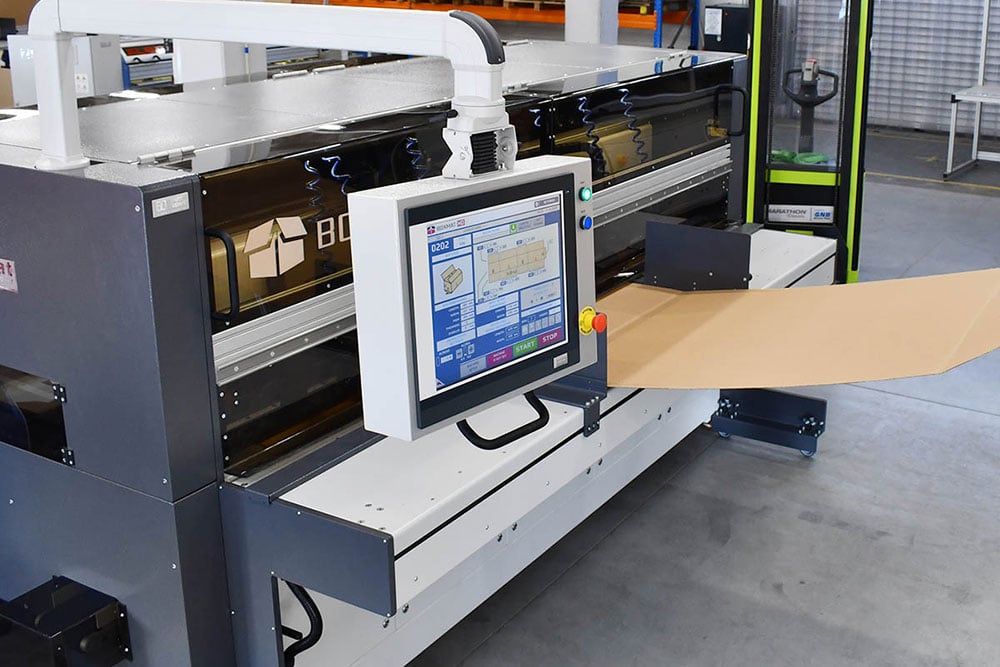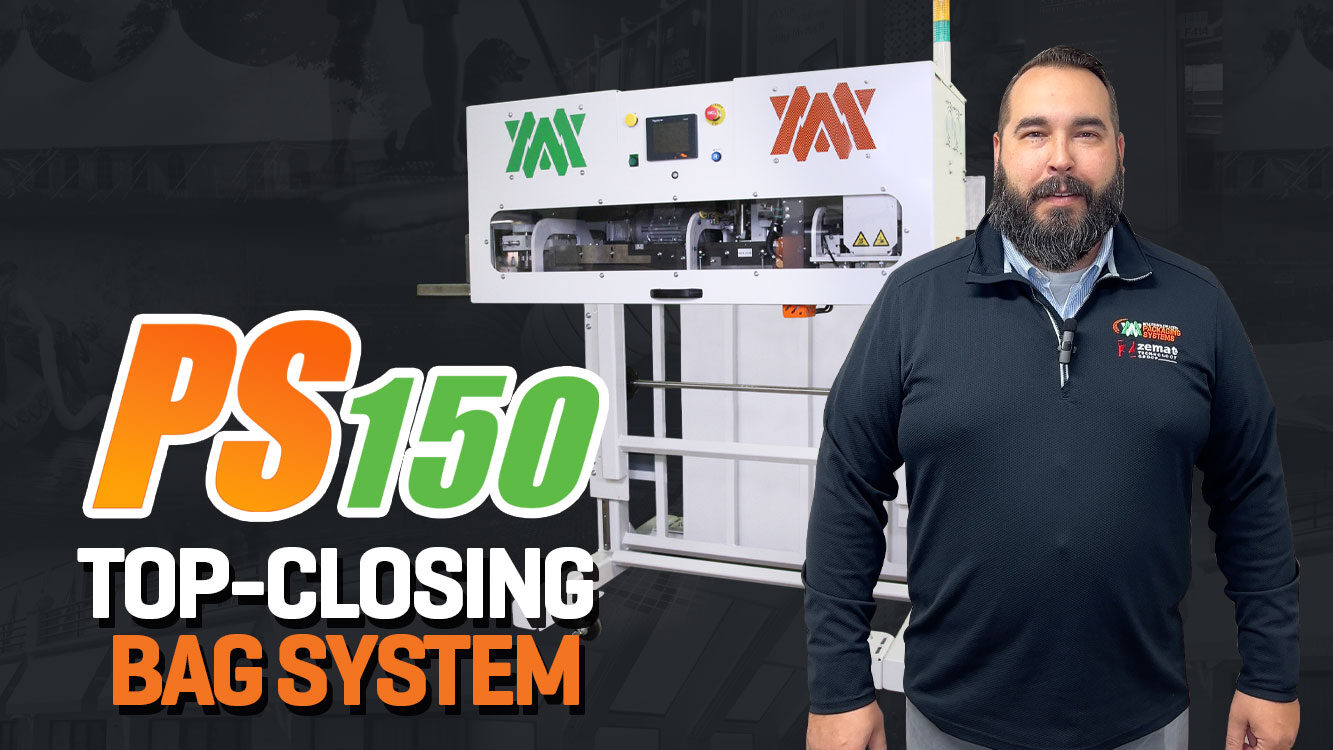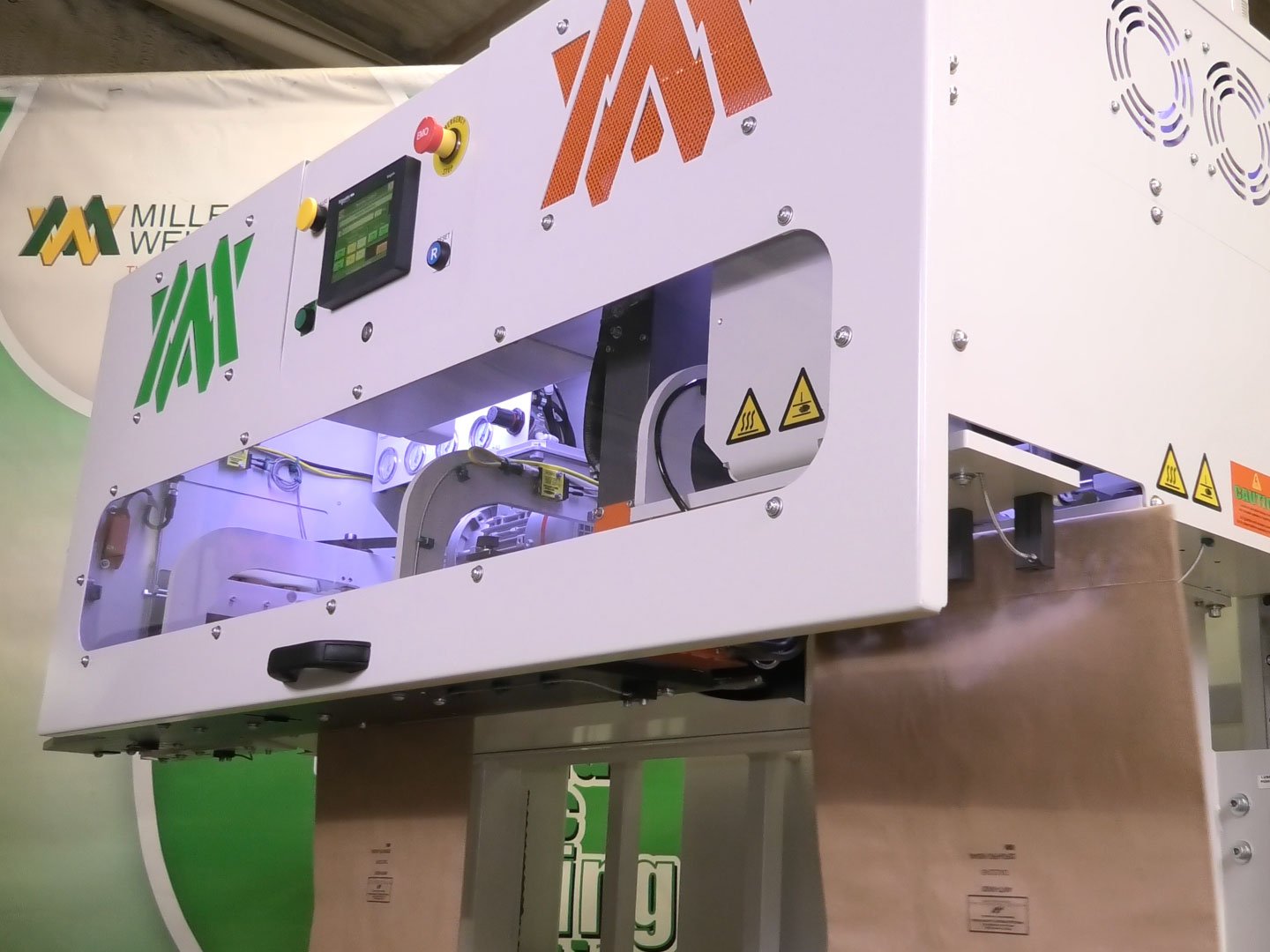Packaging inefficiency, escalating costs, and challenges in quality control can significantly hinder growth. Box making machines have emerged as pivotal game changers, providing substantial solutions to these common issues. For businesses looking to stay ahead, the importance of streamlined, efficient processes in our fast-paced industry cannot be overstated. This is where automated box making machines step in, offering transformative benefits from increased productivity to reduced overhead costs.
Boost Packaging Efficiency & Productivity
Automate Cutting, Creasing, Folding & Gluing
Modern box making machines handle every major step of the packaging process—feeding, cutting, creasing, folding, gluing, and ejecting—within a single workflow. By automating these stages, manufacturers eliminate bottlenecks and speed up production.
Box making machine workflow example:
- Board feeding
- Automated cutting and creasing
- Folding and gluing
- Finished box ejection
Meet Demand Quickly with High Throughput
Fully automated systems can produce hundreds of boxes per hour, allowing businesses to respond quickly to seasonal spikes, bulk orders, and customer demand. Compared to manual or semi-automatic methods, productivity gains are substantial.
Suggested visual: A bar chart comparing boxes/hour for manual vs semi-automatic vs automated production.
Maintain Uptime & Reduce Downtime
Today’s box making machines are equipped with diagnostic software and IoT features that monitor performance in real time. Predictive maintenance alerts allow teams to resolve potential issues before they cause downtime.
Best practices for maximizing uptime:
- Schedule routine cleaning and lubrication
- Monitor wear on cutting and creasing components
- Update software and calibrate sensors regularly
Achieve Precision & Consistency for High-Quality Packaging
Deliver Uniform, Professional Boxes
Automated machines ensure precise cutting and folding, creating boxes with consistent dimensions. Uniform packaging not only looks professional but also protects products more effectively during storage and transit.
Reduce Product Damage & Returns
Right-sized, custom-fit boxes minimize product movement inside the package. This reduces the likelihood of breakage, ensuring products reach customers intact and lowering costly returns.
Integrate Quality Control Sensors
Advanced systems can be paired with sensors or cameras to verify box dimensions and gluing accuracy. These built-in quality control measures catch potential defects early, ensuring only high-quality packaging reaches the customer.
Reduce Costs & Waste Through On-Demand, Right-Sized Boxes
Lower Labor and Material Costs
Automation reduces manual labor requirements while precision cutting and folding minimize material scrap. Together, these factors lower operational costs significantly.
Example of cost-saving potential:
| Factor | Traditional Method | Automated Maker | Savings |
| Labor Hours per 1,000 Boxes | 25 Hours | 8 Hours | 68% or less |
| Material Scrap (%) | 15% | 5% | 10% Less waste |
Save on Shipping & Storage
On-demand production allows companies to create boxes in exact sizes, reducing dimensional weight (DIM) charges and the need for void fill. Businesses also avoid stocking multiple box sizes, freeing valuable storage space.
Support Sustainability Goals
By cutting waste and using fewer resources, right-sized packaging supports eco-friendly practices. Many companies highlight this advantage as part of their broader sustainability initiatives.
Unlock Flexible Customization & Branding Opportunities
Produce Boxes in Diverse Sizes & Styles
Box making machines can quickly adjust to produce different box styles and sizes. Whether corrugated, rigid, or folding cartons, manufacturers gain flexibility to meet diverse packaging needs.
Suggested visual: Table comparing machine capabilities (standard vs custom machines).
Enhance Brand Visibility
Some machines integrate on-box printing, embossing, or foil stamping, allowing companies to add logos, colors, and marketing messages directly to their packaging.
Personalize Packaging for Customer Experience
From subscription boxes to luxury products, personalized packaging elevates the unboxing experience. Businesses can stand out with custom messaging, graphics, and specialty finishes that resonate with customers.
Streamline Operations & Empower Your Workforce
Simplify Training & Reduce Labor Dependency
Intuitive interfaces and automation make it easy to train operators quickly. Teams spend less time on repetitive manual tasks and more time on high-value responsibilities.
Integrate with ERP/WMS Systems
Many box making machines integrate directly with ERP or warehouse management systems. This allows automatic data transfer, eliminating manual entry errors and ensuring packaging dimensions match product requirements.
Improve Workplace Safety & Morale
By removing repetitive manual cutting and folding tasks, automated machines reduce the risk of injuries. Employees benefit from a safer work environment and greater job satisfaction.
Conclusion & Next Steps
Box making machines provide more than just packaging—they deliver efficiency, consistency, cost savings, customization, and streamlined operations. Together, these advantages can transform the way your business approaches packaging.
At Miller Weldmaster, we’re committed to helping companies find the right packaging solutions for their needs. Whether you’re looking to cut costs, improve speed, or explore custom branding, our team is here to support you with tailored guidance.
Frequently Asked Questions about Box Making Machine Benefits
Box making machines significantly improve packaging efficiency by automating production processes, which addresses several key issues businesses face when scaling up. These machines increase the speed of box production without sacrificing the quality of the output, ensuring that products are packaged swiftly and efficiently. This is crucial for businesses looking to meet high demand without encountering delays.
Automation in box making minimizes production delays commonly caused by human errors and repetitive manual tasks. For instance, by automating the box assembly process, companies can avoid bottlenecks that typically occur during periods of high demand or tight deadlines. This streamlined production ensures that no time is wasted, and all resources are utilized optimally.
Additionally, the predictability of output from these machines allows for better planning of downstream activities. Businesses can rely on consistent production rates, which aids in logistics and supply chain management, ensuring that client expectations are met promptly and reliably. By integrating box making machines, companies can boost their packaging efficiency, leading to improved overall operational effectiveness and customer satisfaction.
Box making machines offer significant cost savings in several key areas of packaging operations. These savings are primarily achieved through enhanced material efficiency, reduced labor costs, and decreased waste.
1. Material Efficiency:
Box making machines allow for more precise measurements and cutting, ensuring that each piece of material is utilized to its maximum potential. This precision reduces the amount of excess material used, translating into direct savings on material costs. Over time, these savings can be substantial, especially for businesses with high production volumes.
2. Reduced Labor Costs:
By automating the box making process, these machines significantly reduce the need for manual labor, which can be a major cost in traditional packaging operations. This automation allows businesses to reallocate their workforce to other areas that contribute more significantly to growth and innovation, or simply reduce the number of hours worked, cutting down on labor expenses.
3. Decreased Waste:
With precise cutting technology, box making machines minimize waste production. This not only saves costs by using materials more efficiently but also reduces waste disposal fees. Additionally, operating in a more environmentally friendly manner can qualify businesses for tax incentives and improve their brand image among eco-conscious consumers.
4. Long-Term Cost Savings:
The initial investment in a box making machine is often offset by the long-term savings it generates. These machines typically have lower operational costs compared to manual methods or outsourcing packaging needs. The reduction in ongoing costs related to materials, labor, and waste contributes to a strong return on investment over the machine's operational life.
5. Increased Production Capacity and Efficiency:
Automated box making machines operate at a higher speed than manual packaging processes, increasing overall production capacity without additional labor costs. This increase in efficiency can lead to greater output and faster fulfillment of orders, which can drive revenue growth and help businesses scale more effectively.
Overall, the integration of box making machines into packaging operations can lead to significant cost reductions, making them a valuable investment for businesses looking to optimize their packaging processes and improve their bottom line.
Box making machines greatly enhance the capabilities of businesses to provide custom packaging solutions, catering to specific consumer demands and adapting seamlessly to market trends. This adaptability is crucial for creating a memorable unboxing experience and meeting the diverse needs of different products. Here’s how box making machines facilitate custom packaging:
1. Versatility in Box Design:
Modern box making machines are designed to handle a variety of box styles and sizes, enabling businesses to switch between different types and specifications with ease. This flexibility is vital for businesses that manage a diverse product line, as it allows them to create bespoke packaging that fits each item perfectly, enhancing the product's appeal and protection.
2. Personalization for Branding:
Custom packaging plays a significant role in branding, allowing companies to imprint logos, brand colors, and other custom graphics directly onto the packaging. Box making machines can be equipped with printing technologies that personalize boxes in real-time during the production process, making it easier to create unique packaging that stands out in the marketplace and resonates with customers.
3. Meeting E-Commerce and Retail Needs:
As e-commerce continues to grow, the demand for personalized and robust packaging solutions increases. Box making machines meet these needs by allowing for quick design changes and on-demand production, which is ideal for e-commerce businesses that require unique packaging for different products or seasonal offerings.
4. Enhancing Customer Experience:
Custom packaging can significantly enhance the customer experience by creating a positive first impression and increasing the perceived value of the product. Box making machines help businesses design and produce packaging that not only protects the contents effectively but also provides an attractive and engaging unboxing experience for the customer.
5. Cost-Effective Short Runs:
Traditionally, custom packaging could be costly, especially for small production runs, due to the need for creating dies and setting up manual production lines. Box making machines eliminate many of these initial costs and complexities, making it economically viable to produce even small quantities of custom boxes without significant expense.
6. Quick Response to Market Trends:
The ability to quickly produce custom packaging allows businesses to respond rapidly to market changes or consumer trends. This agility can be a competitive advantage, enabling companies to launch products with targeted, appealing packaging that captures attention and drives sales.
In summary, box making machines provide businesses with the tools to efficiently and effectively tailor their packaging solutions to meet specific customer needs, enhancing brand identity and improving overall customer satisfaction. This capability is increasingly important in a market where customization and personalization are becoming key differentiators.
Box making machines significantly enhance product protection in several key ways, addressing the primary concerns of damage during transport and ensuring that products reach their destinations in pristine condition. Here’s how these machines contribute to enhanced product protection:
1. Custom Fit Packaging:
One of the most critical aspects of protecting products during shipping is ensuring that the packaging fits the product perfectly. Box making machines allow for the creation of custom-sized boxes tailored specifically to each product's dimensions. This precise fit minimizes movement inside the box during transit, which is often a major cause of damage.
2. Consistent Quality and Durability:
Automated box making machines produce boxes with consistent quality and dimensions, ensuring that every package meets the same high standards of durability and strength. This consistency is crucial for businesses that need to rely on their packaging to protect delicate or high-value items throughout the shipping and handling process.
3. Enhanced Material Utilization:
These machines use advanced technology to optimize material use, allowing for the production of stronger boxes without unnecessary bulk or weight. By optimizing the use of materials, box making machines can create packaging that is not only more protective but also more cost-effective and environmentally friendly.
4. Multiple Layering and Sectioning Capabilities:
Advanced box making machines can create boxes with multiple layers and compartments, providing extra protection for products that are particularly fragile or require separation from other items within the same package. This feature is especially beneficial for industries dealing with electronics, glassware, or other sensitive items.
5. Adaptive to Protective Add-ons:
Box making machines can easily integrate with systems that add protective elements such as foam inserts, padding, or dividers. This adaptability allows businesses to enhance the protective qualities of their packaging based on the specific needs of their products, ensuring superior protection against shocks, vibrations, and impacts.
6. Quick Adaptation to Regulatory Changes:
As shipping regulations and standards evolve, particularly for international trade, having a box making machine enables businesses to quickly adjust their packaging designs to comply with new requirements. This adaptability helps maintain product protection standards and avoids the risks associated with non-compliance.
7. Reliable Sealing Techniques:
Modern box making machines often incorporate sealing technologies that ensure boxes are closed securely. Proper sealing is essential for protecting products from environmental factors like moisture, dust, and other contaminants that could compromise the product's integrity during transport.
By leveraging these capabilities, box making machines play a pivotal role in enhancing product protection, helping businesses reduce the risk of product damage and related costs, and improving customer satisfaction through reliable, high-quality packaging.
Box making machines offer several significant labor benefits, streamlining operations and improving workplace efficiency in ways that can transform a production environment. Here are some key labor benefits that can be expected from implementing box making machines:
1. Reduction in Manual Labor Requirements:
One of the most direct benefits of box making machines is the substantial reduction in the need for manual labor. These machines automate many of the tasks that would otherwise require significant human effort, such as cutting, folding, and assembling boxes. This automation reduces the physical strain on workers and lowers the risk of injuries related to repetitive tasks.
2. Labor Reallocation:
With the automation of routine and repetitive tasks, employees can be redirected to more critical and skilled areas of the business. This reallocation helps optimize human resources, allowing staff to focus on areas like quality control, machine maintenance, logistics, or customer service, thereby adding more value to the company.
3. Increased Productivity:
Box making machines enhance productivity by speeding up the production process and minimizing the downtime associated with manual operations. Faster production rates mean that labor can accomplish more in less time, effectively increasing the output per labor hour and enhancing overall operational efficiency.
4. Training and Skill Development:
Operating automated machinery requires a different set of skills compared to manual labor. This shift opens up opportunities for employee training and skill development, which can improve job satisfaction and help retain a more skilled workforce. Employees trained in high-tech equipment are more versatile and can contribute to various aspects of production and maintenance.
5. Reduced Labor Costs:
By automating the box-making process, companies can reduce their labor costs significantly. Fewer workers are needed on the production line, and the labor that is required is often more specialized and better utilized, which can lead to a more streamlined payroll and lower associated costs such as health benefits and insurance.
6. Enhancing Workplace Safety:
Automated box making machines also contribute to a safer working environment by reducing the instances of human interaction with potentially dangerous machinery or the manual handling of heavy materials. This can lead to fewer workplace accidents and injuries, lowering downtime due to health issues and potentially reducing insurance premiums.
7. Decreased Risks Associated with Labor Shortages:
In times of labor shortages or high turnover rates, having automated systems in place ensures that production can continue with minimal disruption. Box making machines provide a consistent production capability that does not depend on the availability of manual labor, thereby securing production against external labor market fluctuations.
In summary, the labor benefits of box making machines are comprehensive, touching on economic, productivity, and safety aspects of operations. By automating and improving efficiency, these machines help companies not only optimize their labor use but also enhance the working conditions and opportunities for their employees.



---2.jpg)
